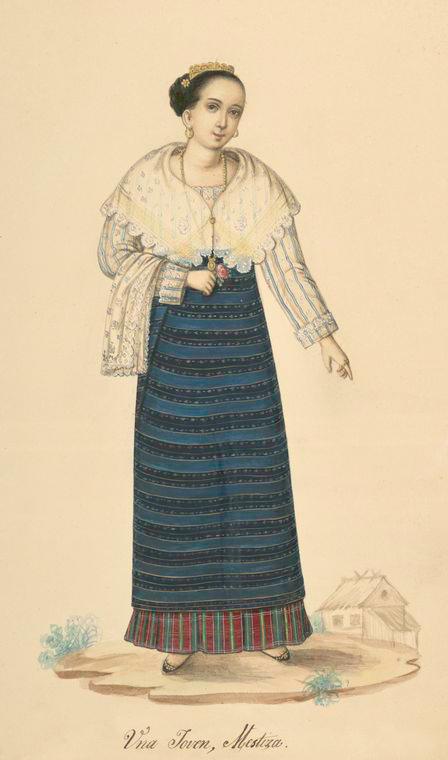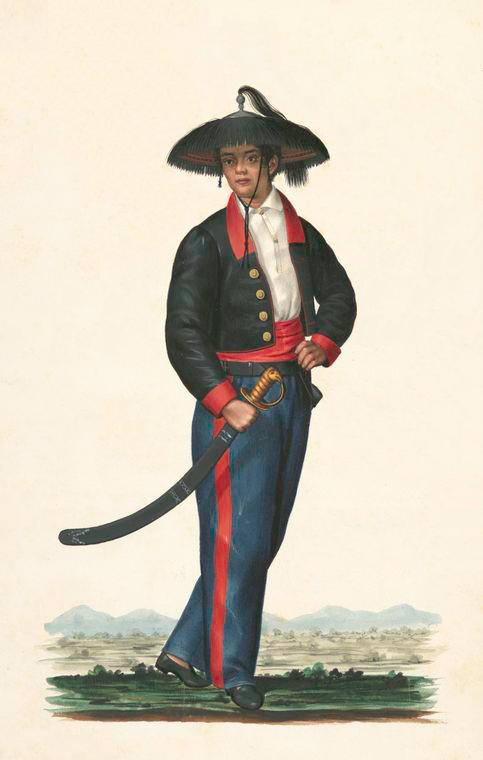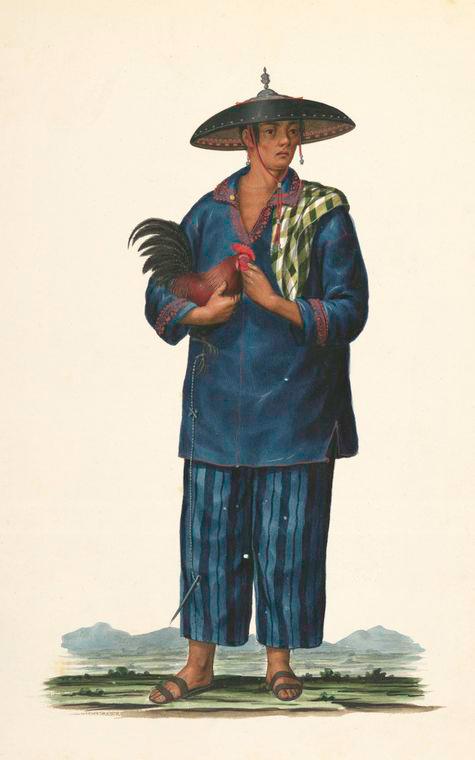
Un Yndio Natural

Una Joven, Mestiza

A guardia de Vino
(an officer to look after the government monopolies, such as arrack and tobacco)

A Damsel Going to Early Mass

A Manila man

Una Yndia Natural, de Filipina

Un Mestizo Chino

A señorita walking to church in the daytime
A Spanish Mestiza of Manila
A country girl
An Old Woman
Rich mestizo
A Mandaya Woman
"Note the silver "patina" on her breast, and the load of armlets. The Mandaya women blacken their front teeth by holding a quid of tobacco and strongly acidic leaves between teeth and lips."
[IN: 'The non-Christian peoples of the Philippine Islands' by DC Worcester, 1913, among the Cornell University South East Asia Visions Collection]
Costumes des Habitans de Manille
[IN: 'Atlas du Voyage de la Perouse, no. 42', 1797 by Jean-Francois de Galaup, Comte de La Perouse. Drawing by JM Moreau; engraved by P Triere. [source]
All the images above (apart from the last two) come from a watercolour album from about 1841, online at NYPL. (there are a few more there I've not posted) The first half of the pictures above are displayed at full size. All of the NYPL images have been extensively background cleaned.
Incidentally, a few of the men are wearing the national male costume of the Philippines: Barong Tagalog (the female counterpart is called Baro't saya {Barbie or anime(!)})
Further Filipino costume illustrations: Skyscraper city forum and The Impact of Spanish Rule in the Philippines from the Tagalog language and cultural resources site at the University of Northern Illinois.
It's obviously an old site, but the People of the Philippines exhibition from the Museum of Anthropology at the California State University, East Bay, has some useful information, particularly about the distribution of ethnic groups across the Philippines.
I added costumes to the delicious tags recently.
Added later: See this article on the Boxer Codex (1595) that is said to depict the Tagalogs, Visayans, Zambals, Cagayanons and Negritos of the Philippines in vivid colors.
No comments:
Post a Comment